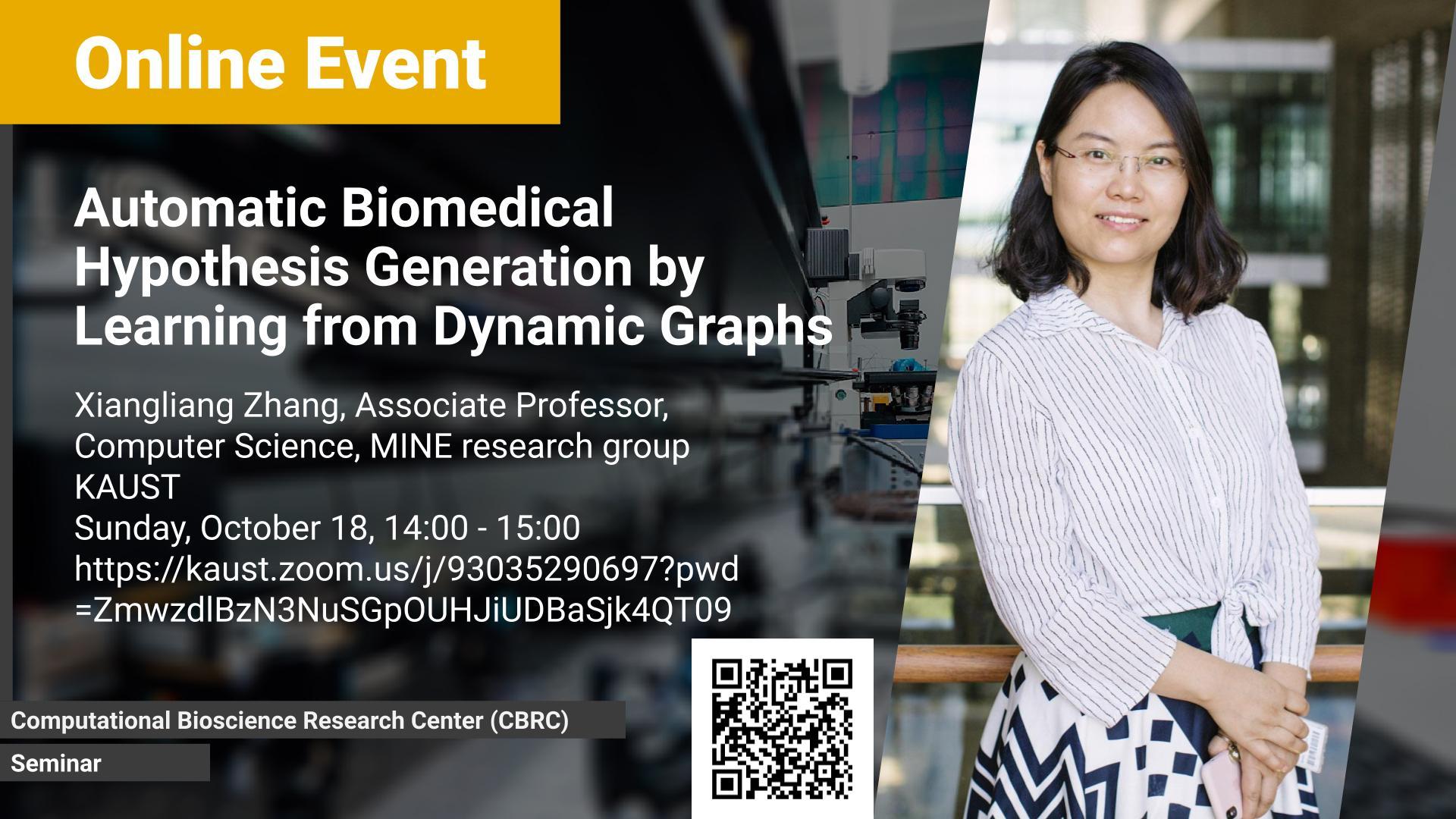Abstract
Understanding the relationships between biomedical terms like viruses, drugs, and symptoms is essential in the fight against diseases. Many attempts have been made to introduce the use of machine learning to the scientific process of hypothesis generation (HG), which refers to the discovery of meaningful implicit connections between biomedical terms. However, most existing methods fail to truly capture the temporal dynamics of scientific term relations. It is not enough to know with whom the terms are connected; it is more important to know how the connections have been formed (in a dynamic process). We formulate this HG problem as a future connectivity prediction in a dynamic attributed graph. The key is to capture the temporal evolution of node-pair (term-pair) relations. This talk will introduce two novel models we developed for automatic HG generation in two different settings, positive-negative learning and positive-unlabeled learning. We demonstrate the efficacy of the proposed model on three real-world datasets constructed from biomedical publications.
Brief Biography
Dr. Xiangliang Zhang is an Associate Professor of Computer Science and directs the MINE (http://mine.kaust.edu.sa) group at KAUST, Saudi Arabia. She earned her Ph.D. degree in computer science from INRIA-University Paris-Sud, France, in July 2010. Dr. Zhang's research mainly focuses on learning from complex and large-scale streaming data and graph data. Dr. Zhang has published over 140 research papers in referred international journals and conference proceedings, including TKDE, SIGKDD, NeurIPS, AAAI, IJCAI, ICDM, VLDB J, ICDE etc. She regularly serves on the Program Committee for premier conferences like SIGKDD (Senior PC), AAAI (Senior PC), IJCAI (Area Chair), ICDM, NIPS, ICML etc. Dr. Zhang was invited to deliver an Early Career Spotlight talk at IJCAI-ECAI 2018.
